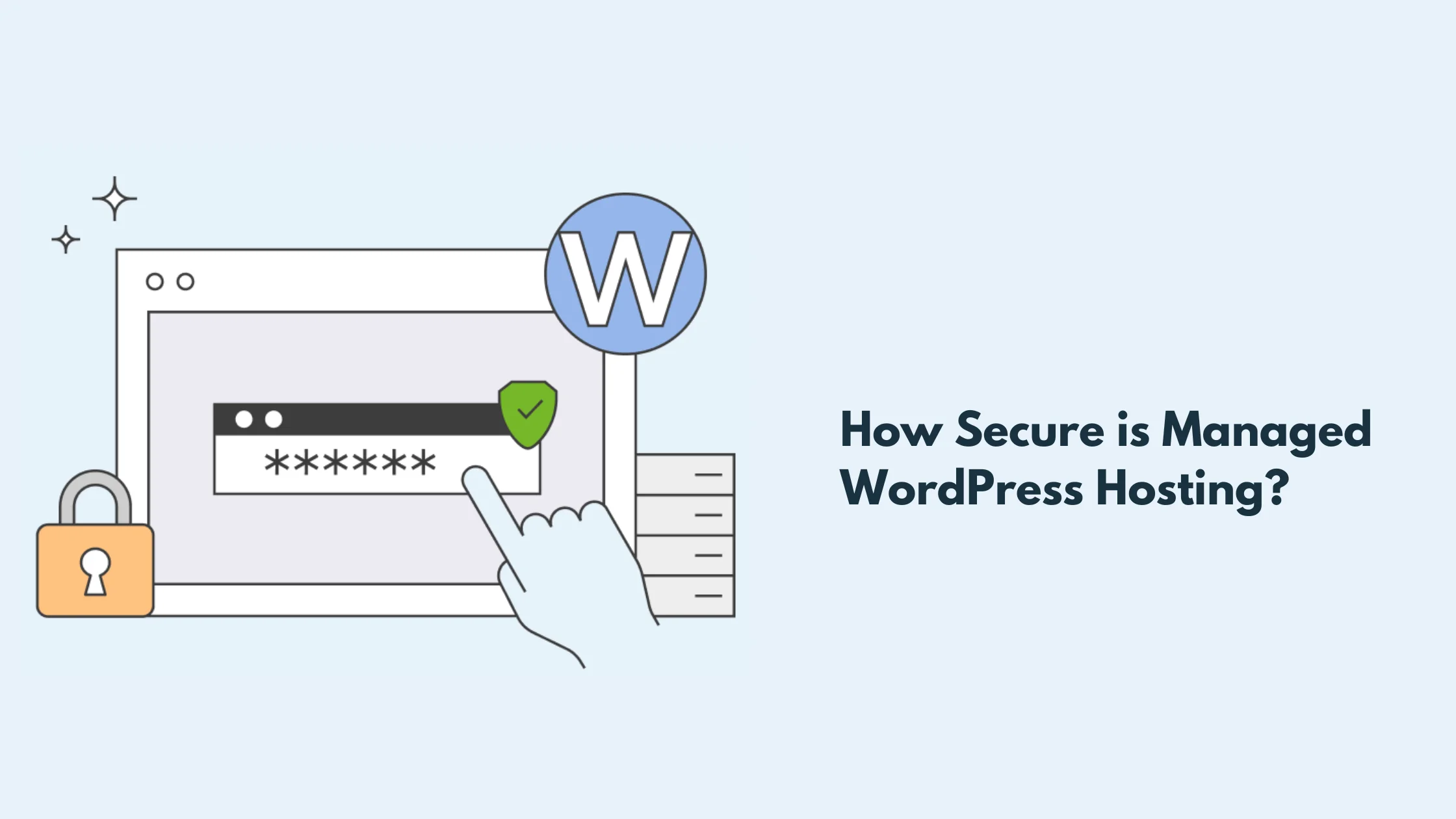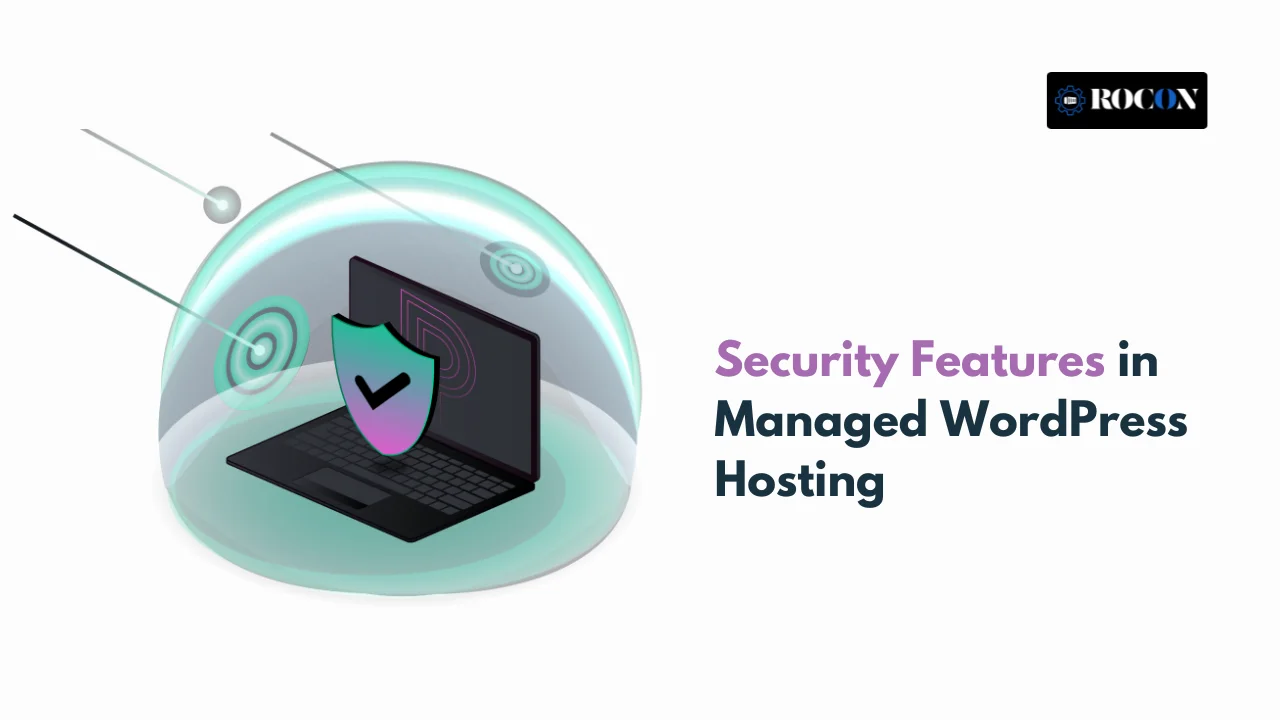imagine waking up to find your WordPress site infected with malware or worse—hijacked. It’s every site owner’s worst nightmare: traffic disappears, brand trust goes out the window and recovery costs through the roof. That’s why managed WordPress hosting security isn’t an add-on, it’s a must. In today’s fast paced digital world your website is more than just code, it’s the face of your brand and often the first point of contact for customers.
With WordPress powering over 40% of the web it’s no surprise it’s a target for hackers. But here’s the good news: choosing a secure, managed hosting solution like Rocon can stop threats before they even get to your doorstep.
In this post we’ll cover why hosting security matters more than ever, what to look for and how Rocon goes beyond traditional hosting to give you solid protection. Stay tuned—you’ll want to know what can save your site from the next big breach.
Why Security Matters More Than Ever
Cyber threats are evolving, and WordPress sites face risks like:
- Brute force attacks attempting to guessing your passwords.
- Malware injections corrupting website files and data.
- DDoS attacks overwhelming servers and causing downtime.
- Outdated plugins and themes becoming entry points for hackers.
These risks aren’t just technical annoyances; they can lead to data breaches, reputational damage, and financial losses. A secure hosting environment is the first line of defense against these threats.
Managed WordPress Hosting: What Is It?
A specialized hosting service designed just for WordPress websites is called managed WordPress hosting.
In contrast to conventional hosting, which gives a general server environment, managed WordPress hosting offers a specially designed and optimized infrastructure just for WordPress, guaranteeing superior security, speedy performance, and knowledgeable assistance.
How Rocon Takes Managed WordPress Hosting Security to the Next Level!
Rocon delivers the ultimate hosting experience, blending security, performance, and ease of use into a single, reliable solution. When you’re ready to protect your WordPress site and elevate its performance, Rocon is here to help.
Explore More
How Secure is Managed WordPress Hosting?

Let’s be real—security isn’t the first thing that comes to mind when you launch your WordPress site. But what if I told you one overlooked security hole could crash your whole site, wipe your data or expose customer info? That’s where managed WordPress hosting security becomes a real lifesaver.
With managed hosting you’re not just renting space to build your website—you’re investing in a safe and stable environment built specifically for WordPress. And when you choose Rocon you’re not just covered—you’re future proofed.
What Kind of Protection Do Managed WordPress Host Offer?
Managed WordPress hosts aren’t your average hosting providers. They’re built to handle the unique security needs of WordPress. Here’s what you typically get:
-
Daily automated backups to save your site from accidental data loss
-
Firewall protection to block malicious traffic before it hits
-
Real-time malware scanning to detect and remove threats
-
DDoS protection to keep your site up and running—even during attacks
-
Regular security patches and core updates to seal vulnerabilities
And here’s the catch—not all providers offer the same level of security. That’s where choosing the right host matters more than ever.
How Does Managed Hosting Handle Malware, Backups, and Firewalls?
Let’s break it down:
-
Malware: Managed hosts like Rocon proactively monitor your site for malware 24/7. If they spot something suspicious, they’ll clean it up—no finger-lifting on your end.
-
Backups: Daily backups are automatic. If something goes wrong, you can roll back your site to a safe version in just a few clicks.
-
Firewalls: A solid firewall filters out harmful traffic before it even gets to your site, keeping bots and hackers out of the picture.
With Rocon, all of these features are built-in, not bolted on later. That means no plugins, no manual updates, and no added stress.
Security Features in Managed WordPress Hosting

The robust security features of managed WordPress hosting security set it apart from the competition by shielding your website from several threats. Here’s a closer look at a few vital security features that managed hosting plans come with:
1. Automated Backups
One of the main components of managed WordPress hosting security is automated backups. Your website’s data is securely saved and promptly recovered in the event of any problems or breaches thanks to daily backups.
If necessary, you can easily restore your website to its prior condition with the help of most managed hosting companies, who frequently offer one-click restore options.
2. SSL Certificates
Secure Socket Layer (SSL) certificates are essential for maintaining the security of websites because they encrypt data transmitted between the user’s browser and the server, safeguarding private data like credit card numbers and passwords.
Your website will always use HTTPS thanks to the basic SSL certificates that WordPress hosting provides. Because Google uses HTTPS as a ranking element, this improves search engine optimization (SEO) as well as security.
3. Firewalls and Malware Scanning
Web application firewalls (WAF), which filter and monitor HTTP traffic to stop dangerous requests and shield your website from dangers like SQL injections and cross-site scripting (XSS) assaults, are frequently included with managed WordPress hosting packages.
Another crucial component is routine malware scanning, which is frequently included in managed hosting services to find and eliminate any harmful software before it can do any damage.
4. DDoS Protection
A vital part of the security of managed WordPress hosting is the prevention of distributed denial of service attacks. With this function, incoming traffic is monitored in order to spot and stop large-scale attacks that try to overload your server.
In order to ensure consistent website performance and lower the risk of interruption during traffic surges, several providers use load balancing techniques to distribute traffic evenly.
5. Secure File Access (SFTP)
The Secure File Transfer Protocol (SFTP), which encrypts data during transfer and offers a safe method to upload, update, or remove website files, ensures secure file access.
Robust access control tools are usually available with managed hosting services. You can give different users different permissions and ensure only authorized users can access certain parts of your site.
6. Regular Security Audits
As a proactive approach, many managed WordPress hosting plans include regular security checks. Vulnerability scans are part of these audits to find security holes and fix them before they can be exploited.
Also managed hosting companies do compliance audits for companies that have to follow certain laws to make sure all requirements are met and adhered to.
Is Managed WordPress Hosting More Secure Than Shared or Self-Hosted Options?
In one word: yes.
-
Shared hosting puts your site on the same server as hundreds of others. If one gets hacked, yours could be next.
-
Self-hosting gives you total control—but also total responsibility. You’re in charge of updates, patches, security protocols, and troubleshooting.
Managed WordPress hosting takes that burden off your shoulders. It’s like having a team of WordPress experts watching your back 24/7—and with Rocon, that team is one of the most advanced in the game.
Which Hosting Offers the Strongest Security?
Let’s compare:
- WP Engine: Excellent speed and solid security, but pricing can be steep for growing businesses.
- Kinsta: Known for reliability and premium support, but certain features come at extra cost.
- Rocon: Delivers enterprise-grade security with container-based isolation, daily backups, malware protection, firewall integration, and a web application firewall (WAF)—all baked into even their entry-level plans.
Plus, Rocon’s containerized architecture means your site runs in its own secure environment. No sharing resources, no cross-site risks. That’s the kind of peace of mind every business owner deserves.
All the Right Tools for Rock-Solid WordPress Security
Experience a hosting environment built for performance and protection—no roadblocks, just a secure, lightning-fast, and scalable setup that grows with your site.
| Features |
Rocon |
| Malcare Bot Protection |
✅ |
| Advanced DDoS Protection |
✅ |
| WAF |
✅ |
| Dedicated Firewalls |
✅ |
| Regular OS and Patch Management |
✅ |
| 24/7/365 Support On All Plans |
✅ |
| Daily Backups |
✅ |
| 1-Click Free SSL Installation |
✅ |
| Multiple PHP Versions |
✅ |
| Google CDN |
✅ |
| Advanced Cache |
✅ |
| Staging Environment |
✅ |
| Account Management Dashboard |
✅ |
| 1-Click Website Clone |
✅ |
| Auto-Healing Servers |
✅ |
| 30 Days Free Trial |
✅ |
Comparison with Unmanaged Hosting
When considering hosting options, understanding the security differences between managed and unmanaged hosting is crucial.
Security Features Comparison
| Feature |
Managed Hosting |
Unmanaged Hosting |
| Updates |
Automatic updates for WordPress and plugins |
Manual updates required |
| Backups |
Automated daily backups |
Manual setup needed |
| SSL Certificates |
Included and often pre-configured |
Requires manual installation and renewal |
| Firewalls |
Web Application Firewalls included |
May require third-party setup |
| DDoS Protection |
Integrated and monitored |
Must be implemented separately |
| Support |
Expert support available 24/7 |
Limited or no support provided |
Benefits of Managed WordPress Hosting Security
The advantages of managed WordPress hosting security go beyond simple defense; it provides all-encompassing solutions that improve website speed and protect sensitive information.
Peace of Mind for Website Owners
Website owners may rest easy knowing that a team of specialists is safeguarding their sites with managed WordPress hosting security.
Hosting companies take care of every part of security, from threat mitigation to monitoring and upgrades, freeing up business owners to concentrate on their main responsibilities rather than worrying about maintaining server security.
Improved Website Performance and Uptime
The purpose of security features in managed hosting is to improve website performance while also providing protection. Managed hosting makes sure that your website functions properly and efficiently, which improves uptime and speeds up loading times by thwarting malware and illegal access.
Better user experiences follow, and these can have a favorable effect on conversion rates and customer satisfaction.
Enhanced Data Protection and Compliance
Managed hosting providers employ cutting-edge data security protocols, guaranteeing that private data is sent and stored safely. This is especially crucial for websites that handle personal data or financial transactions, as these must comply with laws like PCI DSS and GDPR.
In order to guarantee that your website complies with industry requirements, managed hosting providers frequently carry out compliance audits. This lowers the possibility of legal issues and improves overall data safety.
Smart Ways to Secure Your Managed WordPress Site
Even though managed WordPress hosting has strong security protections, you can still improve the security posture of your website by following best practices.
1. Regular Updates and Patches
Updating themes, plugins, and your WordPress installation is essential to preserving security. Although managed hosting companies frequently take care of these updates automatically, it’s crucial to make sure that your site’s components are updated on a regular basis to guard against vulnerabilities that are already known to exist.
2. Strong Password Policies
Imposing strict password requirements is a straightforward but efficient technique to improve security. Urge users to blend letters, numbers, and special characters to make difficult passwords. Additionally, think about teaching users about the significance of password security and putting in place password expiration procedures.
3. Two-Factor Authentication (2FA)
By asking users to confirm their identity using a two factor—such as an email address or mobile device—two-factor authentication (2FA) provides an additional degree of protection. This lowers the likelihood of unwanted access considerably, even in the event that login credentials are stolen.
4. Monitoring and Analytics
Using analytics and monitoring tools can give you important information about the security of your website. These tools enable you to quickly respond to potential threats by detecting unusual behaviors, such as unsuccessful login attempts or unexpected file changes.
Frequent monitoring makes sure that any questionable activity is found and dealt with before it becomes worse and compromises security.
Conclusion
In short, managed WordPress hosting security is key to having a safe and working online presence. Managed hosting gives you all in one solutions that secures your website from various threats like firewalls, SSL certificates, automated backups and DDoS protection.
Online business owners can ensure their website is safe and strong despite of ever changing cyber threats by choosing the right provider and following best practices.
Managed WordPress hosting security is an investment that not only secures your data and performance but also gives you peace of mind so you can focus on your growth and success.
Secure Your Website with Managed WordPress Hosting Today!
Protect your WordPress site from security threats with a robust hosting plan. Get automatic updates, malware protection, and 24/7 monitoring with Rocon’s managed hosting.
Explore More
Managed WordPress Hosting Security FAQS
1. How does managed hosting prevent malware on WordPress sites?
Managed hosting providers do real time malware scanning and removal. They monitor for threats and vulnerabilities so malware is detected and removed before it can harm your site. Providers like Rocon handle this automatically, giving you peace of mind.
2. Do managed WordPress hosting providers offer SSL certificates?
Most managed WordPress hosting providers, including Rocon, provide free SSL certificates, which encrypt data between your site and visitors. This not only secures your website but also boosts your credibility and improves your search engine rankings.
3. Can I control security settings on managed WordPress hosting?
While most security features are managed by your hosting provider, you still have control over certain settings, like adding two-factor authentication or setting custom permissions. Rocon offers flexibility with security, letting you fine-tune additional protections as needed.
4. Is managed WordPress hosting more secure than shared hosting?
Yes, managed WordPress hosting is generally more secure than shared hosting. Managed hosts are focused on WordPress sites specifically, have security layers like malware protection, SSL certificates and daily backups. Unlike shared hosting managed WordPress hosting isolates sites so you’re not affected by other sites on the same server, making it a great choice for businesses.
5. Can managed WordPress hosting prevent malware attacks?
While no system is 100% immune, managed WordPress hosting significantly reduces the risk of malware attacks. Rocon uses proactive malware scanning and malware removal tools to block threats before they hit your site. Plus regular security updates.

Leave a Reply